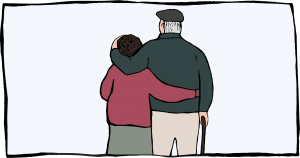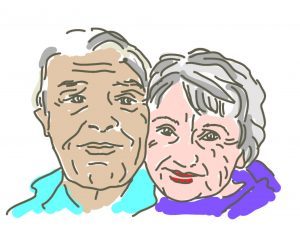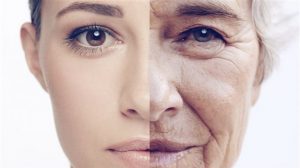growingold

Why is our lifespan by general consent divided into the four age groups childhood, adolescence, adulthood and old age? Because this division originates from the sexual system, and goes back a long time in human history.
Sexual feeling starts before birth and does not end before death
Children are not capable of reproduction, adolescents prepare for it, adulthood is identified with it and old people no longer do it.
Unfortunately, because reproduction is associated with sex, the prevailing idea also tends to be that children do not have sex, that adolescents can but ideally shouldn’t have sex, that adults have sex within marriage for the purpose of making babies or as an expression of married love, while old people no longer have sex. This idea is mistaken, and harmful, and is the basis for widespread ‘agism’ which, like sexism and racism, creates various forms of discrimination. It is very important to remember that the human individual is essentially one and universally the same, and that sexual feeling starts before birth and does not end before death.
Still, for practical purposes, it is useful to know something about the typical sexual aspects of older people’s lives, which obviously show some differences from those of the other age categories.
When does old age begin?
For women, there is a rather clearly marked period of transition called menopause or change, which occurs when she stops having her periods of menstruation. The age at which the menopause occurs is generally between 45 and 55. The production of egg cells (ovulation) becomes irregular and finally ceases. This process may take a year, and is usually accompanied by signals such as irregular bleeding, mood changes, hot flushes. These complaints, and others such as the thinning of hair and bones, atrophy of the vaginal wall, unwanted increase of hair on the face and of fat on the body, are ascribed to the loss of oestrogen (feminine) hormone. The idea of losing one’s attractiveneess may cause moments of panic or bouts of depression.
Thanks to modern science, it is possible to treat symptoms of the menopause with oestrogen hormones. However, these appear to increase the chance of cancer in the reproductive organs (ovaries, uterus, cervix).
 Postponing old age: women
Postponing old age: women
Women can postpone old age by living healthy and active lives, dyeing their hair, esthetic surgery, enjoying life, self esteem. Obviously, feeling sexually attractive and satisfied is an enormous boost to having a zest for life. Sexual desire may remain as strong as ever, and even though lubrication (wetness) of the vagina, sexual arousal and orgasm may take longer than before, with a good lover sex can be enjoyed up to a very old age. The fact that for the majority of women this is only fantasy illustrates how far we are still removed from the good society.
Postponing old age: men
What about men? They do not go through a ‘change’ like women. Their fertility also decreases, but in a much more gradual way, because the production of sperm cells continues. Men of over eighty are known to have fathered children. More men than women also tend to remain in good physical and mental shape. Men of 45 can still look young and attractive, and are themselves attracted to younger females (or males as the case may be). More men than women remain active seekers of sexual gratification through pornography, prostitution and extramarital affairs, and also continue their creative work in science and technology, philosophy and art.
Midlife crisis
Of course, the latter only holds true for a relative minority of men. Most men around the age of 45 feel that they are reaching the end of their career and that the opportunity for romantic conquest is diminishing. This may result in bouts of depression or wild attempts to ‘escape’. This is sometimes called ‘ midlife crisis’ and compared to menopausal symptoms in women. What may happen is a classic situation in which the man falls for a younger woman in the same way he once did for his present spouse, and repeats the romantic sequence of flirting, conquest, involvement and marriage, which results in a new family. More often than not, the man first keeps his affair secret and tries to hold on to his present marriage out of a sense of responsibility, then finds he cannot combine being married and having a romantic lover. Under strong pressure from the social and cultural world around him, he makes his choice. This ‘triangle’ situation is a classic and standard ingredient of our culture, expressed in art and novels, films as well as books on the psychology of relationships.
Sex problems in old age
Some typical sex problems of advancing age are erectile and ejaculatory dysfunction in men and painful intercourse or diminished sexual drive in women. They are mostly due to a combination of ageing and the diminishing attractiveness of sex with the same partner. After all, the main stimulant of sex is newness and adventure. Both men and women (secretly) daydream of romantic involvement with a stranger. Making the dream come true is a different matter, however. This is why sexual counselling, professional as well as commercial, focuses on making the couple’s sex life new and different, either with the help of suggestions to break out of a routine and try out new techniques, or by means of actual aids or substances called aphrodisiacs.
On the whole, old age may have its advantages, such as knowledge and insight and the ability to enjoy life. The big disadvantage is, however that one is no longer seen to be attractive as a sexual partner, and treated accordingly. Women especially can be made to feel left out of the game. They can become old wives envious of youth and beauty, hating sex. Such are those who fall back on old morality and traditional antisexual rules and customs, and repress the young as their mothers did before them. Just as the older men rule the outside world of politics and business, the older women exert great and fundamental power over the inner world of society, the family, reproduction, sexual morals, and so, indirectly, over the men.


 Postponing old age: women
Postponing old age: women
